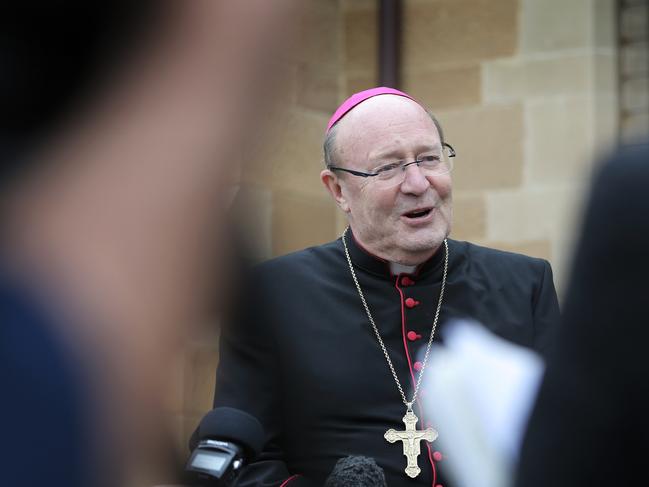Talking Point: Risk of hurt feelings must not curb our freedom of expression
JULIAN PORTEOUS: Tasmanian Act allows complaints for being offended

Opinion
Don't miss out on the headlines from Opinion. Followed categories will be added to My News.
The notion of “hate speech” is often invoked when a view is expressed which is counter to prevailing attitudes on matters like the nature of marriage.
In Tasmania the Anti-discrimination Act speaks not of hate speech, but of “inciting hatred”. Expressing a view about what one believes about the nature of marriage cannot be in itself inciting hatred.
Our society is healthy because there is a freedom to hold and express different beliefs in a respectful way which do not involve expressly promoting hatred of particular groups or individuals. Accusing someone of hate speech simply because they disagree with you threatens the health of a free society.
No reasonable person would oppose laws that protect members of the community, particularly the vulnerable, from unjust discrimination and hate speech. However, there is a problem with the Tasmanian Anti-discrimination Act which allows complaints to be brought forward simply because of perceived hurt or offence about what someone may have said. Section 17 allows people to make a claim that they have been discriminated against simply on the basis of their feelings, for example, if they feel something which has been said is offensive, humiliating, intimidating, ridiculing to them.
The problem is that what one person finds offensive might be considered quite rational and reasonable to others. The critical problem with the current Tasmanian legislation is that it lacks a clear objective test which provides everyone with certainty about what is and what is not acceptable.
Without an objective test there is no guarantee to basic freedom of speech. There is a danger that any statement could be viewed as offensive or “hate speech” simply because the complainant genuinely feels offended and aggrieved.
This indeed was how the Tasmanian Act was used to try to prevent me from carrying out my teaching role as a bishop of the Catholic Church. In 2015 I circulated a pastoral letter published by the Australian Catholic Bishops’ Conference titled “Don’t Mess with Marriage” to parents with students in Catholic schools in Tasmania. The pastoral letter simply explained the Church’s teaching on marriage. It did not attack any group in the society or encourage violence or hatred of any group. It is simply laid out the church’s teaching on marriage, the core of which has existed for more than 2000 years.
The proposed Federal Religious Discrimination Bill seeks to address this situation by establishing that a “statement of belief” does not contravene subsection 17 (1) of the Tasmanian Act. In other words a person would not be able to bring a claim against another person for feeling offended, humiliated, intimidated or ridiculed by what they have said if it is part of a statement of belief.
It is critical to note that “statements of belief” are only exempted from the application of section 17 (1), and not section 19 of the Tasmanian Act which concerns hate speech. Further the proposed Religious discrimination Act exemption from 17 (1) does not apply if the person is seeking to be malicious or promote hate speech.
The impact of the proposed federal Religious Discrimination Bill on the Tasmanian Act would not in any way weaken the current protections against hate speech. These protections remain completely unaffected by the federal legislation.
Rather, all the proposed federal legislation would do is to provide the kind of exception or protection for religious belief that is already granted to ‘artistic, scientific, academic and research’ purposes, with regard to section 17 (1). Why should these purposes be excepted and not religion? This current situation is not clearly equitable or fair. The proposed intervention by the Federal Government would simply right this wrong.
Julian Porteous is the Catholic Archbishop of Hobart.


